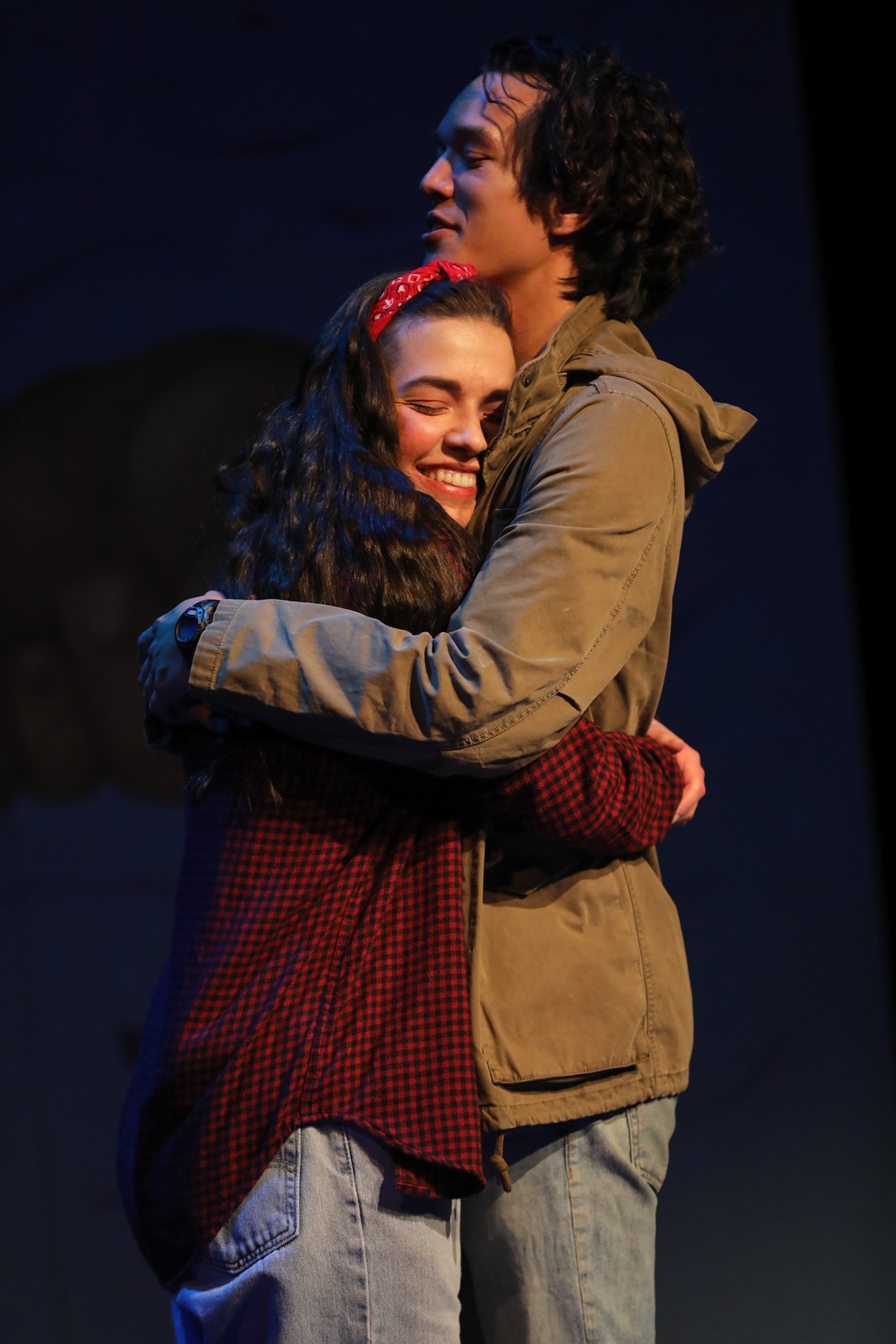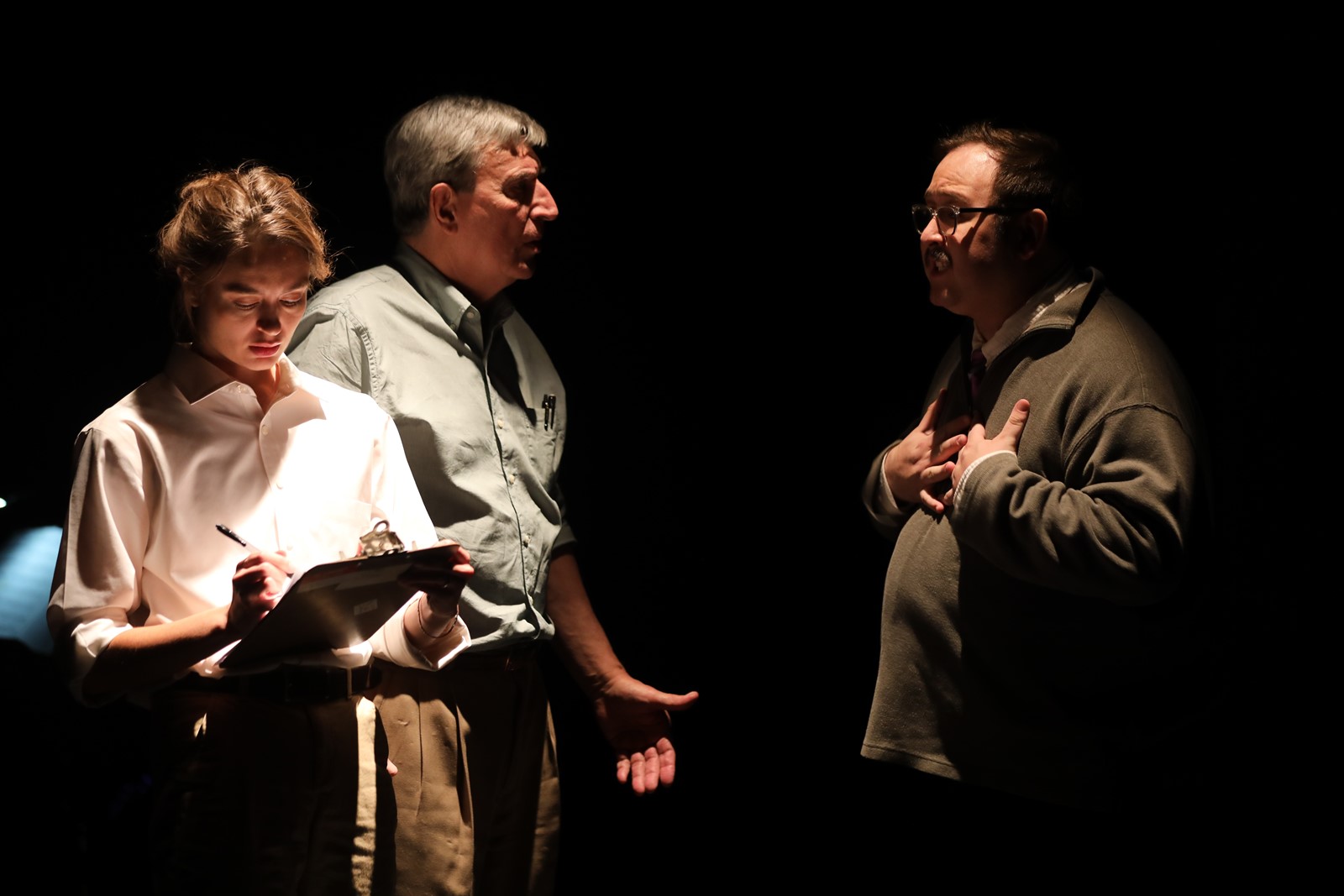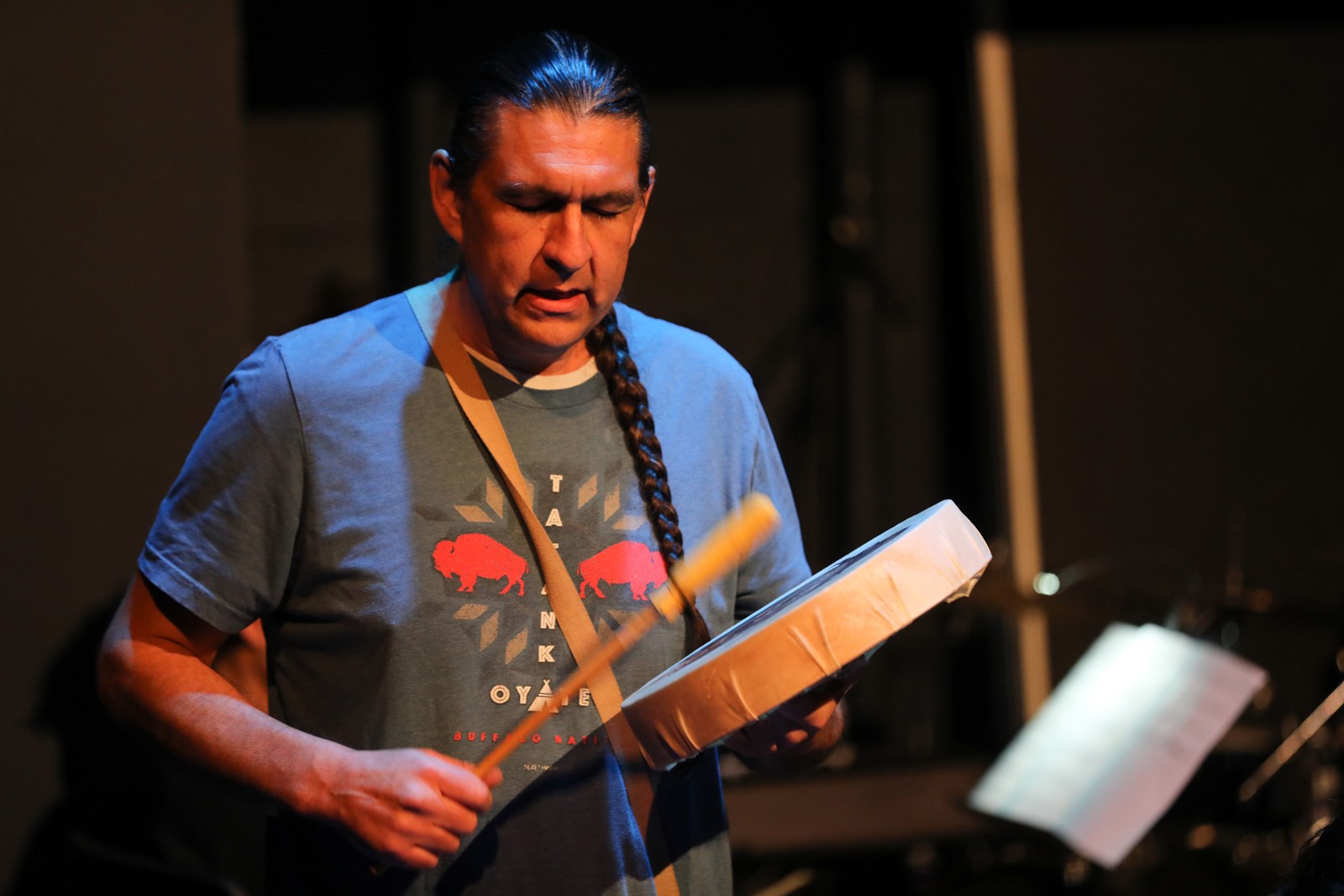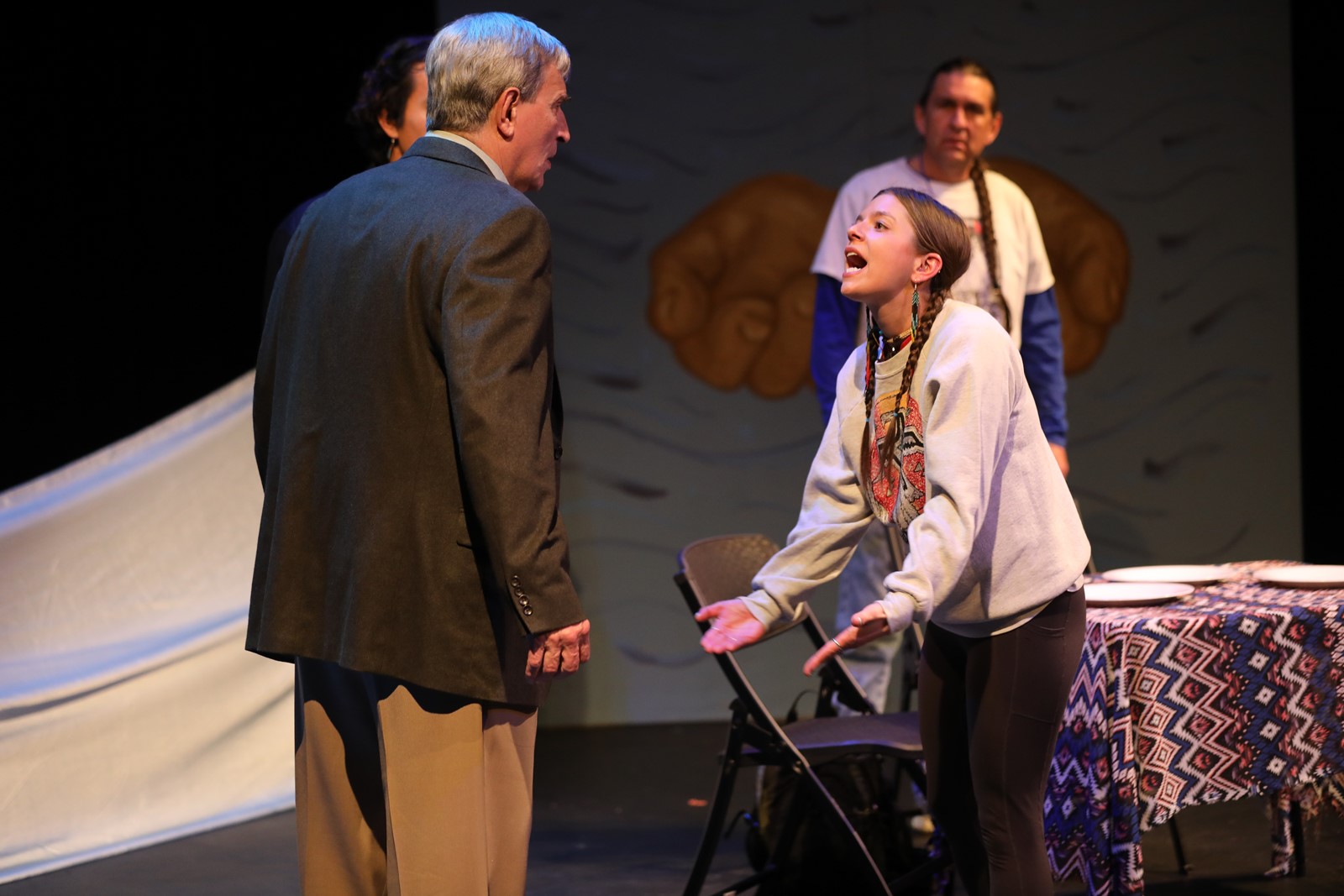



People may remember a news story that made headlines nearly a decade ago — the battle over Oak Flat.
In 2014, a multinational mining company set its sights on the high-country desert haven in southeast Arizona, intending to build a massive copper mine.
But as the mining company Resolution Copper — and the rest of the world — would soon learn, Oak Flat isn’t just any old beautiful stretch of high desert. It’s a sacred site for the Apache people, a place to join in prayer, hold ceremonies and connect with Indigenous ancestors. And while building the mine would effectively erase a cornerstone of Apache history and culture, it would also potentially reinvigorate the struggling economies in nearby mining towns.
At the forefront of reporting on this unfolding story was Cordelia Zars, a radio journalist who traveled to Oak Flat in 2021 to document the battle to save the land. While interviewing Indigenous leaders, environmental activists and rural community members, she witnessed, firsthand, the depth of the conflict. It was not just a battle over land but also a collision of identity and survival.
What struck Zars most was that, despite being pitted against each other, both communities were fighting for the same thing: a future for their people.
“The complexity of their struggles resonated deeply,” Zars said. “I realized this was a perfect story for theater — a medium that can delve into these nuances and remind us that many issues we see as clear-cut are far more complicated.”
Her time in Oak Flat became the inspiration for penning “We’re Still Here,” the latest production from Boulder County’s Empathy Theatre Project. It’s on stage at the Dairy Arts Center through Feb. 9.
It’s based on the events in Oak Flat, but the play/musical shifts the setting to the fictional town of Temple, Iowa, and offers more of a retelling of the story rather than a completely factual account. However, the heart of the story remains the same: Two communities, both fighting to protect what they call home, are caught in a clash between cultural preservation and economic survival.
Zars wrote “We’re Still Here” alongside her friend and collaborator, Alex Walker Jr., an elder from the Meskwaki Nation. The two met serendipitously during a sweat lodge ceremony in Colorado and quickly formed a connection. This was around the time when Zars had finished reporting on Oak Flat and was developing the idea for a musical inspired by the conflict. Knowing that she couldn’t authentically tell the story alone, she turned to Walker Jr., whose deep cultural knowledge and lived experience helped shape the script, music and Indigenous storytelling that lies at the heart of the production.
“Alex’s storytelling is rooted in oral traditions, so much of our process involved sitting together for hours while he shared his experiences, songs and cultural teachings,” Zars said. “He told me about his childhood, his time as a Vietnam veteran, and the sacred relationship his community has with water. I asked countless questions. From there, my job was to translate his stories into the script and dialogue.”
“We’re Still Here” follows the story of two young leaders — one Indigenous, one from a struggling rural town — each fighting to protect what they call home. One sees the mine as a destructive force, threatening sacred land and centuries of cultural heritage. The other views it as a lifeline, offering jobs and a way out of economic hardship.
As adversaries, they clash over the mine’s future, but along the way, they form an unexpected bond — one that challenges their beliefs and forces them to see beyond their struggles.
The play doesn’t endeavor to take sides, instead, it humanizes both perspectives, capturing the impossible choices these communities face. Kind of like how “Wicked” taught us that there are no easy villains, “We’re Still Here” teaches us that there are not always right or wrong answers.
“Take copper, for instance,” Zars said. “It’s critical for renewable energy, but extracting it can destroy ecosystems. I wanted to explore this tension and give audiences a chance to see both sides of the story, to connect with the humanity of everyone involved. The play exposes these nuances by offering glimpses into the hopes, struggles and traditions of both communities.”
Empathy Theatre Project — which was founded by Zars and features Max Middleton as the production director — is focused on bringing stories to the stage in a fair-minded, deeply researched and empathetic fashion. (As its name would suggest)
The approach is refreshingly unique — rather than preaching to the choir or stepping on a soapbox, the group creates original plays that explore multiple perspectives, encouraging audiences to sit with discomfort, complexity and nuance. The company does its homework, too. Each production is shaped by extensive research, interviews and firsthand storytelling to ensure authenticity and depth.
“After the 2016 election, Max and I felt a deep calling to do something as artists to address the division,” Zars said. “We were struck by how people seemed to stop talking to each other, with dialogue no longer seen as an option. Neither of us is in politics, but we wanted to contribute in a way that felt authentic to us.”
Zars added: “Our goal is for audiences, no matter their political affiliation, background, or beliefs, to leave feeling more open to perspectives they may not have considered before. Art has the unique power to quietly shift how people see one another, and that’s why this work feels so important.”
For actor Ellen Shamas-Brandt, joining the cast of “We’re Still Here” was more than just another role — it was the chance to join a theater company that she greatly admired.
Shamas-Brandt is no stranger to the stage. Theater has been woven into her life since childhood, with her first role at age 6, under the direction of her mother, an actor and director. From her years performing with Main Street Players in Littleton to her involvement in Boulder’s first Storytellers Festival through the Dairy Arts Center’s Creative Nations Collective, she had always seen theater as more than just entertainment — it was a space for healing, connection and transformation.
But in all her years working with different companies, the Empathy Theatre Project stood apart.
“What is different about Empathy Theatre Project is their clear mission to bring people together,” Shamas-Brandt said. “Many theater groups have admirable goals about making the arts accessible, but Empathy goes further by creating space for respectful dialogue.”
“We’re Still Here,” she said, is a perfect example of putting that mission into action — one that doesn’t just tell a story, but invites audiences into a conversation.
“Empathy Theatre Project excels at fostering conversations about divisive issues in a way that’s inclusive and thought-provoking, which is something our society desperately needs,” she said.
In the production, Shamas-Brandt plays the role of a river spirit, along with three other actors. Similar to that of a Greek chorus, the river spirits are always present onstage during the play, portraying the river itself through choreographed movements by actors draped in long, satin fabric. They sing ensemble songs to help frame the scenes.
Shamas-Brandt, who is a member of the Chickasaw Nation, said that for the role she drew inspiration from her great-great-grandfather, great-grandfather and grandmother and weaved their presence into her performance.
“The river spirits represent the ancestors who have gone before us, so each of us were encouraged to really think about who we are as characters,” she said. “I decided that my river spirit persona would be my grandmother. She passed away when I was just 2 months old, but my mother has shared so much about her with me. This role has been a beautiful way to honor that connection.”
Where Shamas-Brandt is new to the production, actor Brian Adams first auditioned last year for the musical’s original production and has been playing Hansi Schrimer — a news reporter — ever since.
“What drew me in initially was the opportunity to be part of the original cast of a musical — definitely a bucket list item for any actor,” Adams said.
But beyond the thrill of originating a role, it was the company’s message and mission that kept him invested.
“I love working with Max and Cordelia,” Adams said. “They’re passionate artists who place activism at the forefront of their work, which I truly respect.”
Adams’ character plays a pivotal role in the show — not just as a journalist chas
ing a story, but as a bridge between perspectives. At the start, Hans is all about ambition, public relations and making a name for himself. But as the play unfolds, his motives shift. He becomes more invested in the truth, and, in doing so his journey mirrors that of the audience.
“Hans serves as a litmus test for how serious the situation is getting,” Adams said. “He starts out comedic and lighthearted, but by the middle of the second act, even he realizes how high the stakes are.”
That shift allows the audience — especially those who may not initially relate to the struggles of the Indigenous community or the rural mining town — to see the weight of the issues in real-time.
For Adams, the relevance of the play in today’s political and cultural climate was a major draw.
“What’s especially powerful about this show is that it highlights Indigenous stories, which are often erased or ignored in conversations about land use and legal battles,” Adams said. “It’s one of the first times I’ve seen these stories told truthfully and modernized on stage without being Eurocentric.”
Adams added that “We’re Still Here” refuses to paint the conflict in black and white.
“The play doesn’t point fingers or vilify any group,” he said. “It portrays the struggles of the impoverished mining community as just as valid as the fight to protect sacred land. Both communities are struggling, and both deserve empathy.”
When it comes to favorite moments in the show, Adams is split between two. As a musician, he loves “The Mining Song,” which he describes as “one of the few genuinely celebratory moments in the show.” But as a performer, it’s the final scene that stands out for him.
“I can’t give away too much, but it’s a shocking ending that always leaves an impact,” he said. “Hearing the audience sniffle as the lights go out is one of the most rewarding experiences as a performer — it shows they followed the journey with us.”
Ultimately, Adams sees “We’re Still Here” as a play that challenges people to think differently about the world.
“In today’s climate, it’s rare to see a production that captures these nuances so well,” he said. “What Cordelia and Alex have done in the writing of the show is somehow make a show that manages to be everything.”
He added: “There are moments where it is roaringly hysterical and almost farcical. But then there are moments, like I said, where people leave the theater crying and thinking differently about the world when they went in.”
In a time when division feels more intense than ever, that might just be exactly what all of us need right now.
“We’re Still Here” is on stage at the Dairy Arts Center’s Grace Gamm Theatre, 2590 Walnut St., Boulder, through Feb. 9. Tickets cost $20-$25 and can be purchased at thedairy.org.


 PREVIOUS ARTICLE
PREVIOUS ARTICLE
